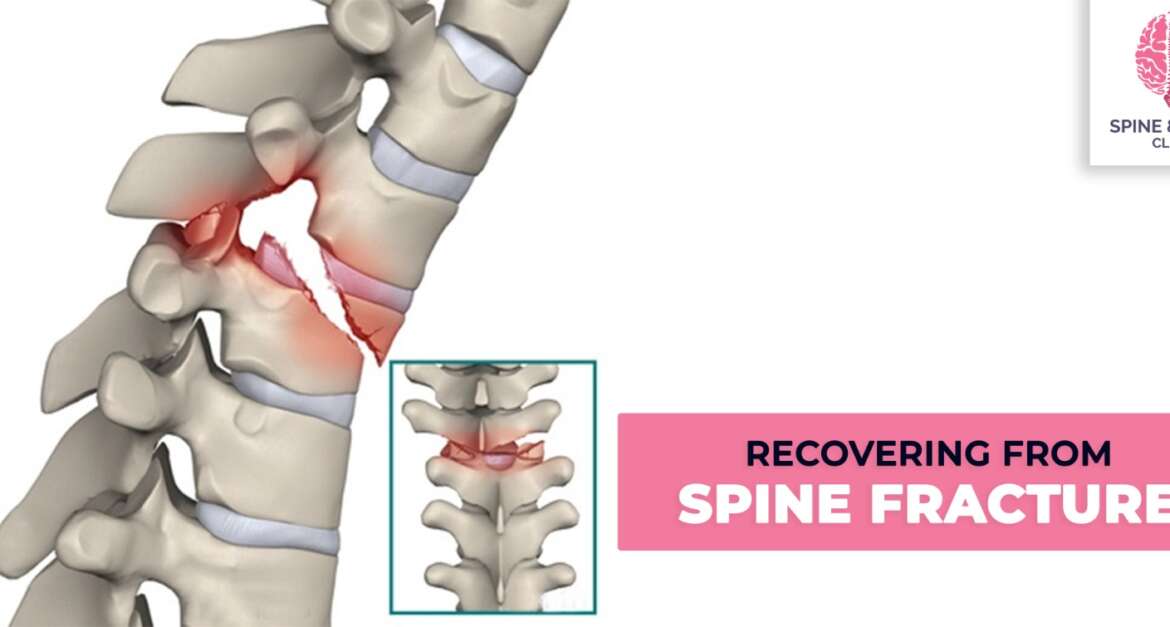Recovering from a spine fracture can be a long and challenging process. Depending on the severity of the fracture and the treatment required, recovery can take several weeks to several months. In this blog, we’ll discuss some tips for recovering from a spine fracture and regaining mobility and independence.
- Follow Your Treatment Plan: Your healthcare provider will develop a treatment plan based on the severity of your spine fracture. This may include pain management, bracing, physical therapy, or surgery. It’s important to follow your treatment plan as prescribed to ensure the best possible outcome.
- Rest and Avoid Heavy Lifting: Resting and avoiding heavy lifting is essential during the early stages of recovery. This will give your body time to heal and prevent further damage to your spine. Your healthcare provider may recommend a period of bed rest or limited activity to aid in recovery.
- Take Pain Medication as Prescribed: Pain medication can help manage the pain associated with a spine fracture. Take pain medication as prescribed by your healthcare provider to manage your pain effectively and avoid potential complications.
- Participate in Physical Therapy: Physical therapy is an essential part of recovering from a spine fracture. A physical therapist will develop a personalized treatment plan to help you regain strength, flexibility, and mobility. Physical therapy can also help prevent future injuries and improve your overall quality of life.
- Use Assistive Devices: Assistive devices such as a cane, walker, or wheelchair may be necessary during the recovery process. These devices can help you remain mobile and independent while your spine heals.
- Maintain a Healthy Diet: Eating a healthy diet can aid in recovery by providing the necessary nutrients for your body to heal. A balanced diet that includes plenty of fruits, vegetables, lean protein, and whole grains can help promote healing and reduce the risk of complications.
- Practice Good Posture: Good posture is essential during the recovery process. Poor posture can put extra strain on your spine, slowing the healing process and increasing the risk of complications. Practice good posture by sitting and standing up straight, with your shoulders back and head level.
- Participate in Activities that Promote Relaxation: Stress can slow the healing process and increase pain levels. Participating in activities that promote relaxation, such as meditation or yoga, can help manage stress and promote healing.
- Address the Emotional Impact of Recovery: Recovering from a spine fracture can be emotionally challenging. Addressing the emotional impact of recovery, such as through counseling or support groups, can help manage stress and promote healing.
- Follow Up with Your Healthcare Provider: Following up with your healthcare provider is essential during the recovery process. Your healthcare provider will monitor your progress and adjust your treatment plan as necessary to ensure the best possible outcome.
In conclusion, recovering from a spine fracture involves following your treatment plan, resting and avoiding heavy lifting, taking pain medication as prescribed, participating in physical therapy, using assistive devices, maintaining a healthy diet, practicing good posture, participating in activities that promote relaxation, addressing the emotional impact of recovery, and following up with your healthcare provider. By following these tips, you can help promote healing, regain mobility and independence, and improve your overall quality of life.

